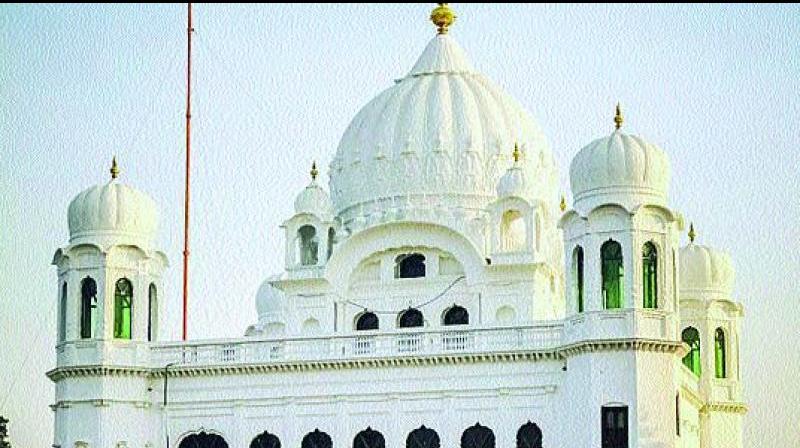India postpones Kartarpur corridor talks
India has told Pak that it awaits its response on the Indian concerns following which the next date for talks can be decided.

New Delhi: Indian concerns over Khalistani propaganda in Pakistan have scuttled the next round of talks on the Kartarpur Sahib corridor on April 2 at Wagah in Pakistani Punjab even though New Delhi is moving at breakneck speed to construct the corridor on its territory (Indian Punjab) by September.
The government sources on Friday said India had “called in” Pakistan deputy high commissioner Syed Haider Shah and conveyed to him the concerns over appointment of known pro-Khalistan people like (Pakistani Sikh) Gopal Singh Chawla and others on a committee on the Kartarpur pilgrimage and sought to know the role that they would be playing.
India has told Pakistan that it awaits its response on the Indian concerns following which the next date for talks on the Kartarpur corridor can be decided. This effectively means that the talks that were supposed to take place on April 2 at Wagah in Pakistan between the two sides will not happen. But in a key concession, Pakistan has agreed to allow Indian pilgrims irrespective of faith for the Kartarpur Sahib after New Delhi said that apart from Sikhs, a large number of non-Sikhs also follow the ideals of Guru Nanak, the founder of Sikhism and first Guru of the Sikhs.
Apart from Mr Chawla, India is also concerned about the presence of alleged pro-Khalistan people like “Maninder Singh, Tara Singh, Bisant Singh and Kuljit Singh” on the committee.
“This has raised our security concerns. Gopal Singh Chawla is also associated with (Mumbai terror attack mastermind) Hafiz Saeed and the JuD. There can't be any let-up on security concerns. There are clouds of doubt,” the government sources said.
They further added, “These people are involved in making statements and engaging in activities that promote violence and hatred against India”.
But apart from the Khalistani propaganda by elements in Pakistan, other issues were also expressed.

